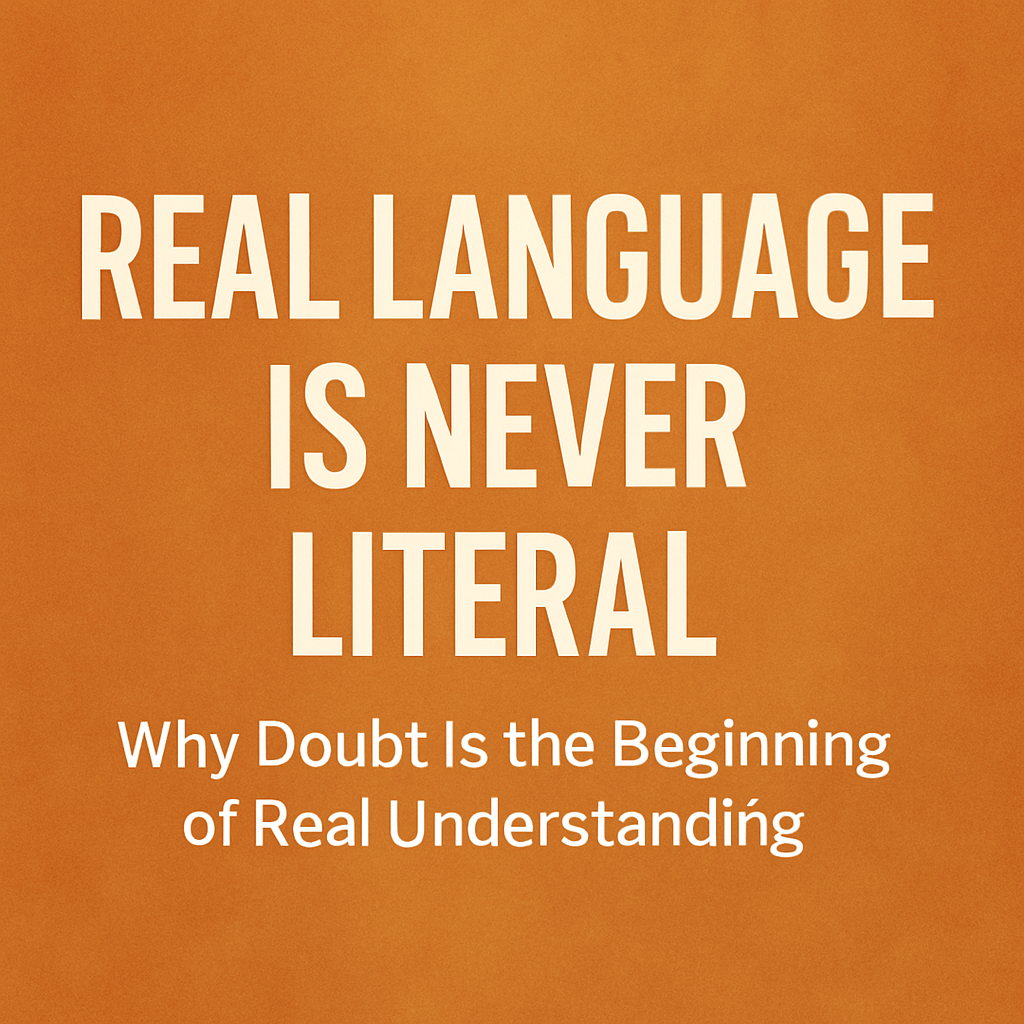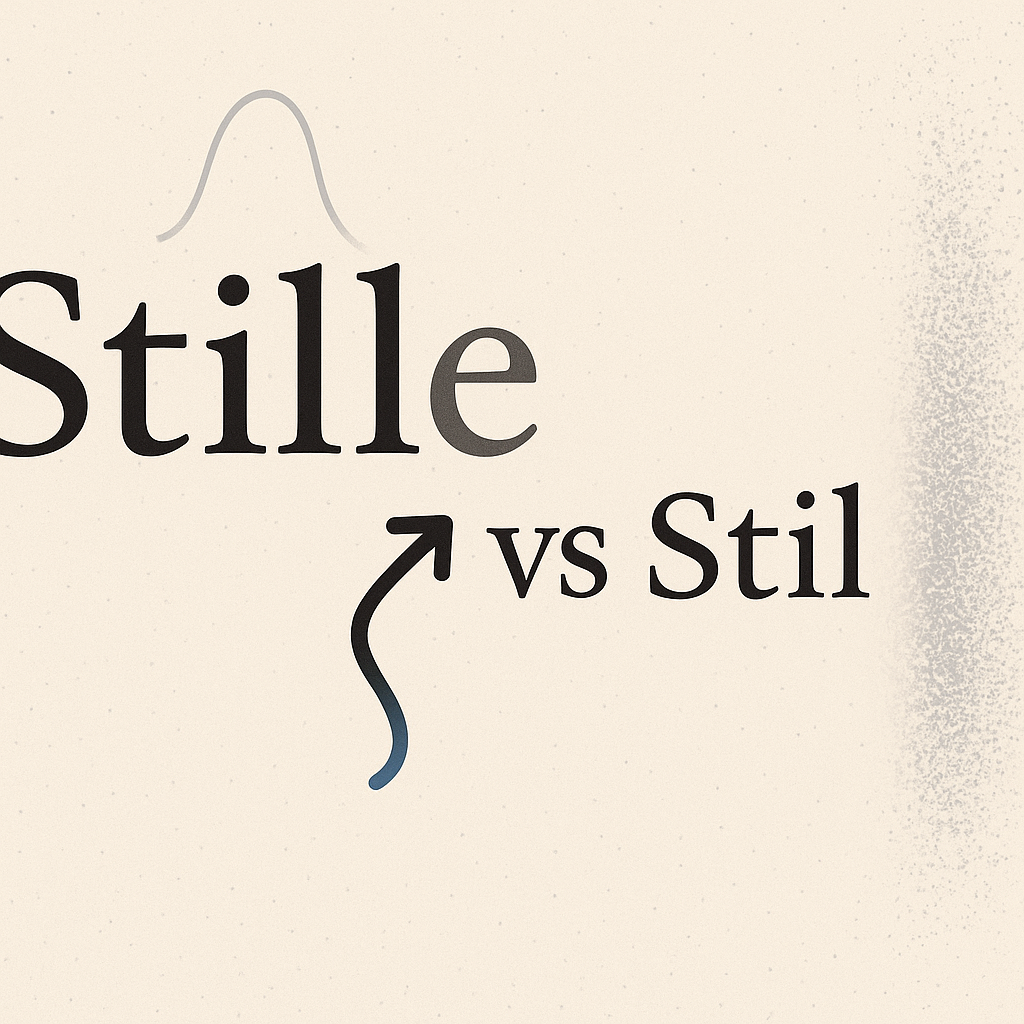What “Your Favorite Work” Really Means in German — and Why It’s Often Misunderstood
🟦 The Language I Live — Author’s Column by Tymur Levitin
Language. Identity. Choice. Meaning.
What kind of work do you love?
If you’re learning German, you’ve probably learned that Arbeit means “work.”
But does it also mean job? Or career? Or profession?
And how would you say something like “my favorite work” in German?
Let’s say you try:
Lieblingsarbeit
It seems logical. Favorite (Lieblings-) + work (Arbeit).
But what about:
Lebensarbeit — the work of your life
Lebensjob — the job you live for
Lebenstätigkeit — the activity you dedicate your life to
They all sound poetic.
They all sound serious.
But they all mean something different.
And that difference matters — especially in German.
Arbeit is action — Job is function — Tätigkeit is status
In German, you don’t just “work.”
You perform a role. You carry a function. You fulfill an activity.
Let’s break it down:
- Arbeit
→ physical labor, duty, effort — like building, writing, repairing
→ the actual actions you do
→ Ich habe viel Arbeit heute. (“I have a lot of work today.”) - Job
→ a role or function, often paid, often temporary or task-based
→ influenced by English usage
→ Ich habe einen neuen Job gefunden. (“I found a new job.”) - Tätigkeit
→ formal, intellectual or administrative activity — more abstract
→ more about your status than your task
→ Seine Tätigkeit als Lehrer war erfüllend. (“His work as a teacher was fulfilling.”)
So when students ask:
“How do I say my favorite work in German?”
My first answer is:
“Tell me what kind of work you mean.”
Lebensarbeit is not the same as Lebensjob
Let’s compare a few German compound words — and how they shape meaning.
| Expression | Literal Meaning | Real Connotation |
|---|---|---|
| Lieblingsarbeit | Favorite work | A bit childish or simplified — not idiomatic |
| Lebensarbeit | Life’s work | Often used for long-term personal or moral projects |
| Lebenstätigkeit | Lifelong activity | More abstract — status or mission |
| Lebensjob | The job of your life | Your favorite position or role, closer to calling or function |
A German speaker might say:
Seine Lebensarbeit war es, den Dialekt seiner Region zu bewahren.
Ihr Lebensjob ist Lehrerin – sie kann sich keinen anderen Beruf vorstellen.
Or even:
Diese Tätigkeit ist meine wahre Berufung.
(“This activity is my true calling.”)
Why literal translation fails — again
The confusion doesn’t come from grammar.
It comes from the philosophy behind the language.
In English, we often say:
- I love my job.
- Teaching is my passion.
- I enjoy my work.
But in German, lieben і mögen aren’t usually used for jobs — unless poetic.
And Arbeit doesn’t evoke emotion — it evokes effort.
That’s why simply translating “my favorite work” into Lieblingsarbeit can sound awkward, childish, or even unclear.
What this teaches us about identity
Your words are not just labels — they’re self-definitions.
A student once told me:
“I love teaching. It’s what I was meant to do.”
We discussed how to say this in German without sounding unnatural or overly romantic.
Eventually, we found a phrase that worked:
Das ist meine wahre Tätigkeit.
Or
Das ist meine Berufung. (“That’s my calling.”)
And that felt right.
Not because it was a perfect translation —
but because it fit who he was in the structure of a new language.
Final thoughts
If you’re looking for your Lebensarbeit, your Lebenstätigkeit, or your Lebensjob -
don’t start with vocabulary.
Start with clarity.
Who are you? What do you do? And how do you want to be seen?
Then find the word that matches your meaning -
not just your dictionary.
📘 Author’s Column — The Language I Live
Language. Identity. Choice. Meaning.
✍️ Автор: Тимур Левітін
Founder, teacher, translator — Levitin Language School
🔗 Виберіть свою мову
🔗 https://levitinlanguageschool.com
🔗 https://languagelearnings.com
🔗 Related reading from our blog:
→ Stille vs Stil: When Silence and Style Sound the Same
→ Real Language Is Never Literal
→ Land or Staat? Why One Country Isn’t Always the Same
© Тимур Левітін






















